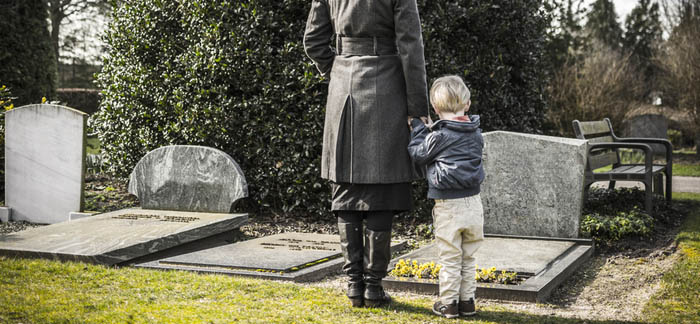Dealing with Grief and Ways to Cope

The loss of a loved one can be one of the most difficult experiences to come to terms with. Grief can feel overwhelming. The first weeks of loss may feel too strange and scary. Giving yourself time to heal is important.
But what is equally important is to find ways to manage this grief so that we can turn our attention to those people and activities that need our help and support. Dealing with grief is important for your own healing and those depending on you.
5 Stages of Grief
Grief isn’t a single emotion that comes over us at once. We experience grief in stages. Each stage is different and affects us in unique ways. In 1969, Elisabeth Kübler-Ross outlined the stages of grief.
She stated that grief evolves in five distinct stages:
1. Denial
We often experience disbelief and shock when we first experience loss. We may find it incredibly hard to believe that things have suddenly taken a turn for the worse.
We may even actively avoid acknowledging that we have experienced this loss. We may even refuse to express our grief, choosing to stifle it, in the hope that ignoring the loss will not make it real.
2. Anger
Next, our feelings turn towards anger. We question why this happened to us or what did we do to deserve this. At this stage, we feel impotent rage towards our helplessness.
While anger may feel unhealthy, doctors agree that it is an incredibly healthy response. Expressing anger allows us to break the gates that we have put up and which block our grief from finding an outlet.
3. Bargaining
Next, grief shifts from expressing one-sided anger towards an attempt to have a conversation with others in our life, and even God. Prayers and pleas are an integral part of the bargaining stage. We wish for a happier reality.
Many times, we feel guilty and responsible for the loss we have experienced. The bargaining stage helps us acknowledge and deal with our guilt. While this can be a very hard stage, it is also cathartic.
Bargaining helps us identify what we did right and what we did wrong in the past. It allows us to unconsciously decide future steps that we can take to prevent such a loss in the future and to protect ourselves.
4. Depression
Depression is one of the most challenging stages of grief. The sinking realization and impact of the loss come once we have bargained with ourselves and/or our God. We may feel that we have lost everything at this stage.
At this time, we may want to spend time alone and sway from our friends and relatives. When handled right, this time allows us to reconsider our lives and find ways to start back up from scratch.
5. Acceptance
The final stage of grief is acceptance – where we come to terms with our loss. We realize there is no point in wallowing in sadness or pity. Grief can last a lifetime. We can – and should – learn to live with it.
At this stage, we try to get back to our old life. We may try to ease back into the personal, social, and professional relationships we had before. This is the stage where we need immense support to start living again.






